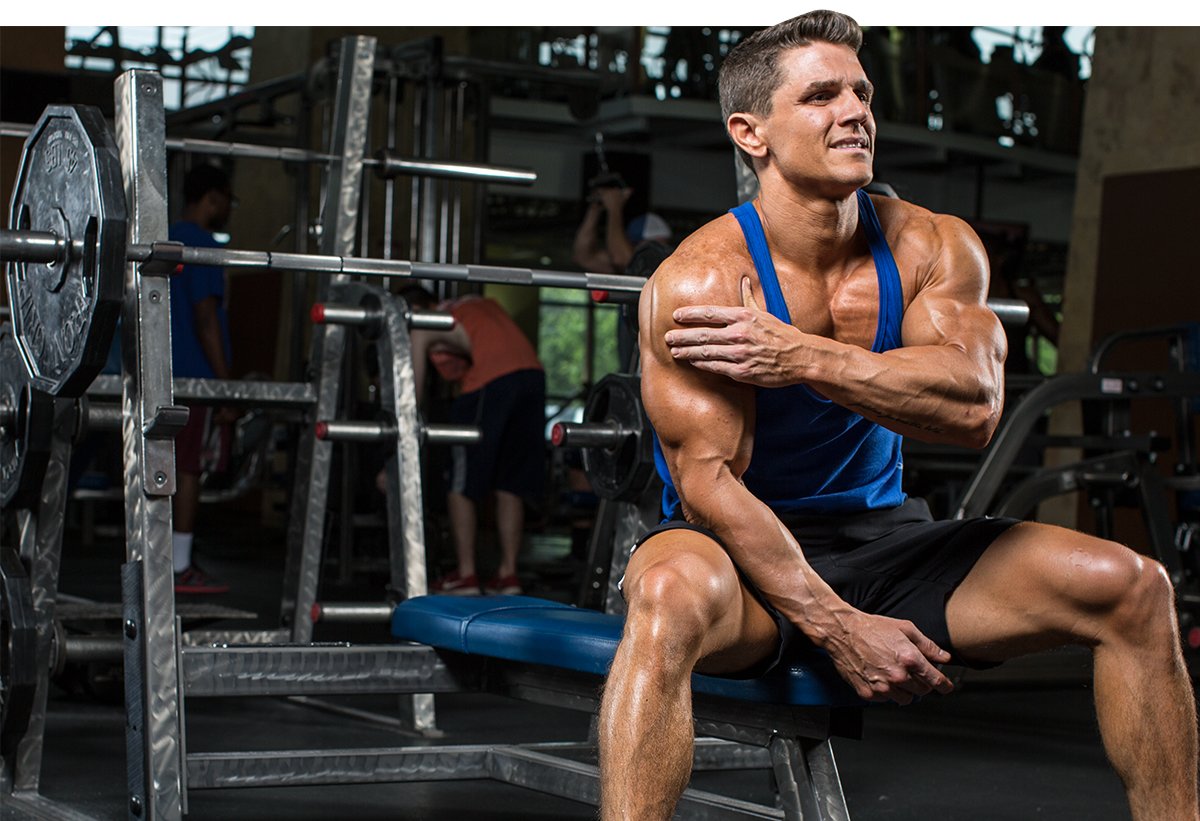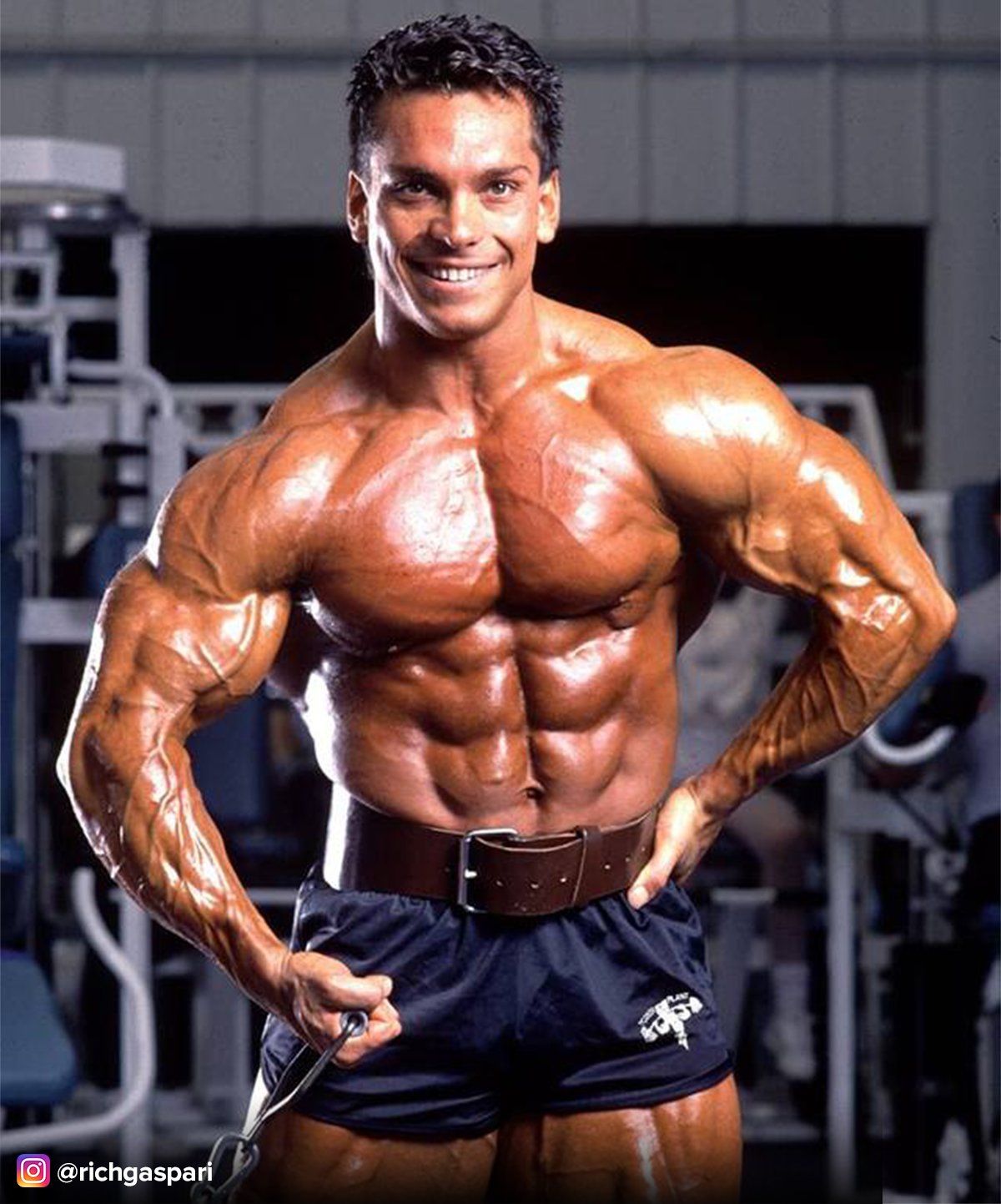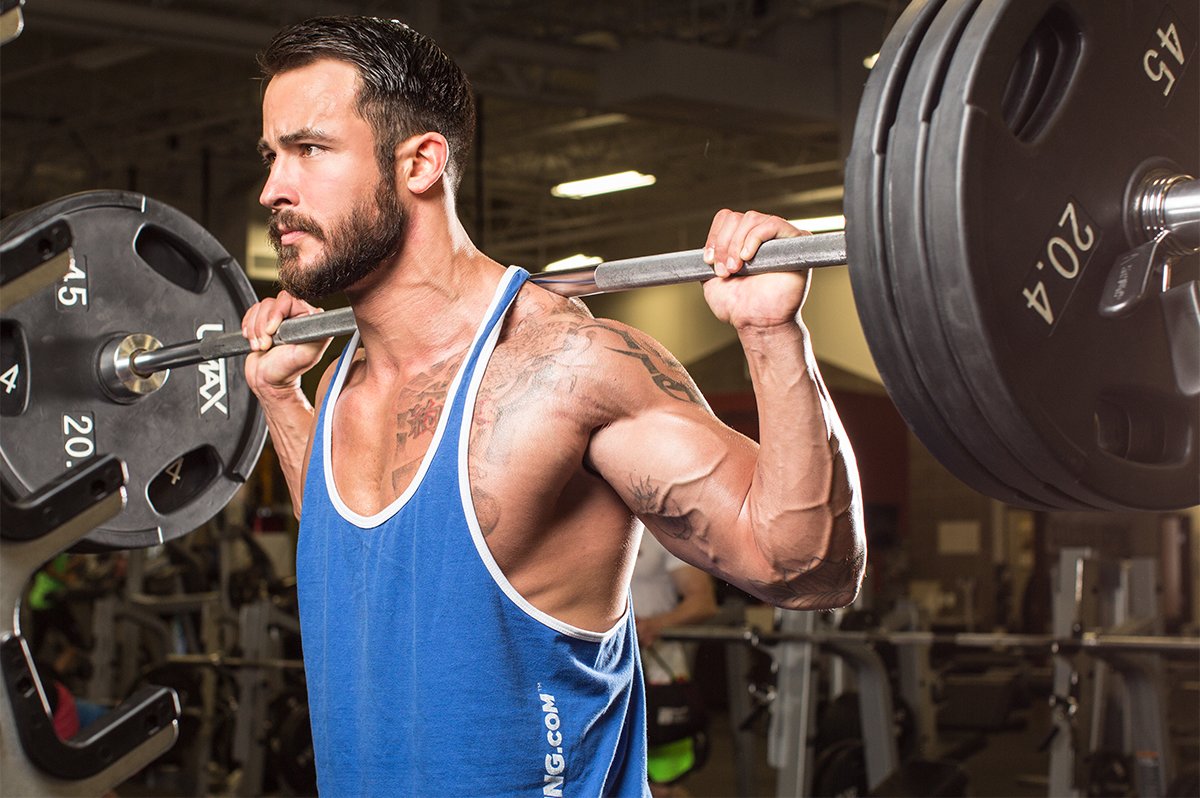Many of you who are reading this right now are probably in your teens or early 20s. Right now, you are gung-ho about bodybuilding, bursting with enthusiasm to transform your body into a muscular marvel. You can't imagine ever quitting, and you have a social media account packed with the memes to prove it.
But the cold, hard truth is that only a fraction of you will still be training hard 10 years from now. And only a fraction of that fraction will still be hitting the iron 20 years from now. Most of you will have given up for any number of reasons, and will look just like a regular person: skinny, fat, skinny-fat, or just, well normal. That's just how the odds shake out.
As I write this, I am on the verge of turning 47 years old. I started messing with weights around age 12 or 13, and shortly after I turned 14 at the start of ninth grade, I decided I was going to stay committed and consistent with lifting until I had seriously beefed up my 95-pound body. Plenty of other kids I knew were into lifting weights—mostly bench presses and curls, of course. By the time I graduated at 135 pounds, most of them had lost interest. Then, in my 20s, I found a whole new community of bodybuilders to train and compete with. This was a revelation.
And yet, a couple decades later, most of them have long since abandoned serious training. Many haven't exercised in any way for years. What happened? The same things that will happen to you eventually. But by preparing yourself ahead of time, you can look these situations in the eye and persevere.
Will You Quit When The Pain Comes?
If you train hard and heavy for long enough, even with thorough warm-ups and good form, you will still get hurt. You'll have a "that didn't feel right" moment in your lower back, shoulders, or some other similarly delicate body part, and the irritation will unexpectedly last longer than just a day or two. You'll get a muscle tear, a joint sprain, or experience chronic pain in the lumbar spine, hips, shoulders, knees, or elbows due to issues such as joint impingement, soft-tissue injuries, arthritis, or other inflammations. It will happen.
Personally, I have probably injured my lower back over 100 times since the first instance at age 18, I've torn a triceps muscle, had shoulder surgery to relieve impingement, and have advanced arthritis in both shoulders. I've had to adapt my training to all those situations, which usually meant having to give up certain exercises and going much lighter on others.
But that's just half the story. Injuries are just as challenging psychologically as they are physically, perhaps even more so. When you can't train, or can't train the way you want to, it can be frustrating and depressing. Just ask Branch Warren, whose laundry list of injuries I laid out in the article "What The Bodybuilding Greats Can Teach You." Losing the size and strength you worked so hard to build is also devastating, even if you know you can regain it eventually. It's not easy to have faith that things will get better with time and patience.
You're going to experience this. Will you quit?
Will You Quit When Your Goals Dissolve?
Very few of you will ever be able to look like the guys on the magazine covers or the Mr. Olympia stage, no matter how long and hard you train or how many risks you are willing to take along the way. You could do everything right, and your biggest goals might still end up being both unrealistic and unattainable.
I was totally ignorant of this as a teenager when I fell in love with bodybuilding. I vividly recall being 18 years old, staring at the photos of my idol, Arnold Classic Champion and three-time Mr. Olympia runner-up Rich Gaspari, and being absolutely certain I would look just like him in a year! Here I am pushing 50, and I still haven't ever looked like The Dragonslayer in his prime.
We all have a specific genetic blueprint, with things like bone structure and muscle shape and attachments predetermined. We can and should make the most of what we were given from our parents, but we can't change our genetics. The genetics for being a champion bodybuilder on even the local level are, to say the least, rare. And despite what anyone who peddles drugs or gray-area substances would like you to believe, only bodybuilders with incredibly special genetics can ever look like a Mr. Olympia competitor.
So you probably won't ever look quite as big and freaky as you dream. Will you quit?
Will You Quit When The Gains Stop?
Every serious lifter remembers that amazing "honeymoon phase" when gains were steady and substantial. There's nothing else like it. It was amazing! And then it was over.
Without digging too much into the exercise textbooks, training like a bodybuilder gives you a shock to the system that forces your body to adapt to the new stress, ultimately signaling the muscles to grow larger and more powerful. But sooner or later—and it might take six months or two years—the body will become accustomed to training and your gains will slow to a crawl.
Unfortunately, it gets worse. Sooner or later, you will run into long periods of plateaued results. As hard as you try, you won't gain an ounce of new muscle for months. Assuming you switch things up and are on point with your rest, nutrition, and supplementation, you will eventually see progress again. But it's very hard for most people to continue putting out effort day after day, month after month, while seeing no reward for those efforts.
As the years go by, these stretches will be longer in duration. It will seem as if all hope is lost, and pushing on will seem pointless. I guarantee you that if you train long enough, these phases will happen. Will you quit?
Will You Quit When Nobody Else Cares?
Right now, nobody blinks if you go to the gym every day and come home sweaty, veiny, and swilling protein. But what about 10 years from now?
At some point, some people will discourage you from pursuing your goals or ridicule you for having those goals in the first place. They'll belittle you and say you're shallow and narcissistic for putting so much time and effort into building your body. People will give you no credit for your hard work and dismiss your results as being purely the fruits of illegal drugs, even if you never touch the stuff. They will assure you that all your muscle will turn to fat. They will tell you they know someone's brother's uncle's best friend who is 10 times bigger and stronger than you. They will tell you how unhealthy your pursuit of bigger muscles is, even while they drink, smoke, and are overweight themselves.
But those are just the haters. Other people—people you love—will simply fail to encourage you, acknowledge your progress, or praise your dedication. They just won't care. Will you quit?
Will You Quit When Life Happens?
It's easy to say, "training is life," but then one day, life steps in and reminds you what it really is.
You might have to work 60 or more hours a week to support a family. You might only be able to get five hours of sleep every night due to work, school, or parenting demands. You might spend eight hours at work every day and another three commuting to and from work. Finding time for training and eating right will be a massive challenge. You might have to take care of a disabled child, an ill partner, or an aging parent.
Bodybuilding will seem an impossible task in the face of all this. Will you quit?
Why I Haven't Quit, And You Shouldn't Either
For all those reasons, most people do quit. Me? I've faced most of those obstacles and impediments over the last 30-plus years, but quitting was never an option. As God is my witness, I never once considered it.
Why did I persevere? I think it has a lot to do with the fact that bodybuilding was never solely about the results. It was never about the muscle. No, bodybuilding was the habit that gave me the structure and discipline I was able to apply in other areas in my life. It gave me confidence. Bodybuilding taught me how to set goals and follow through on accomplishing them through hard work and persistence. Bodybuilding provided stress release when I faced issues such as marriage problems or the deaths of my parents and my sister.
Of course, in my case, bodybuilding also gave me a career in the fitness industry. But there's no doubt that it paid me more in intangibles than in dollars. No matter who you are, bodybuilding can be an incredible journey of self-discovery and personal transformation.
Whether you are 15 or 50, whether you started training last week or 20 years ago, I urge you not to quit—no matter what. You won't regret it.





























